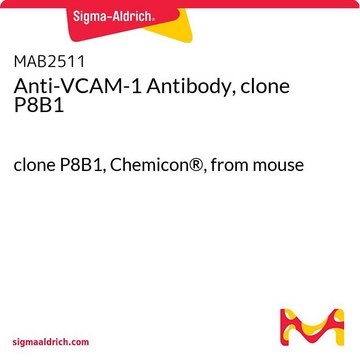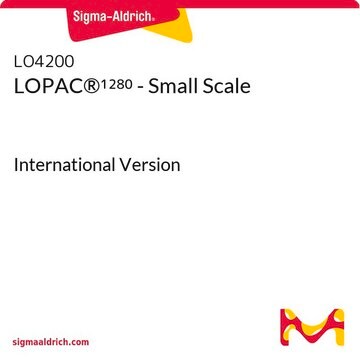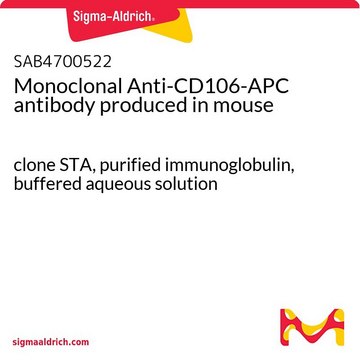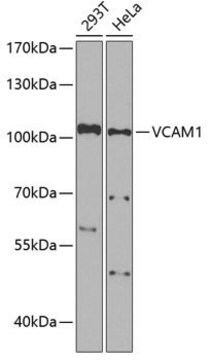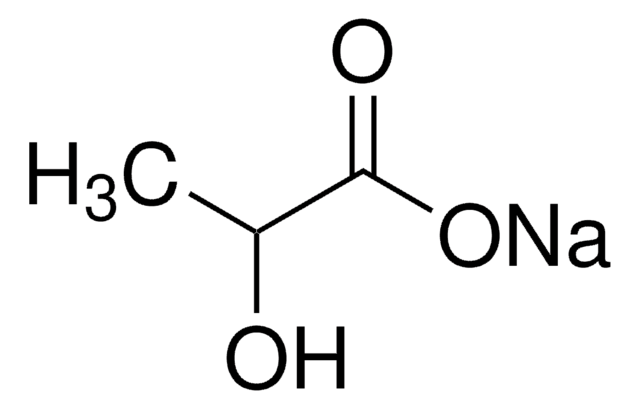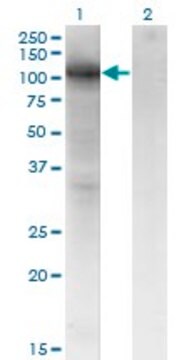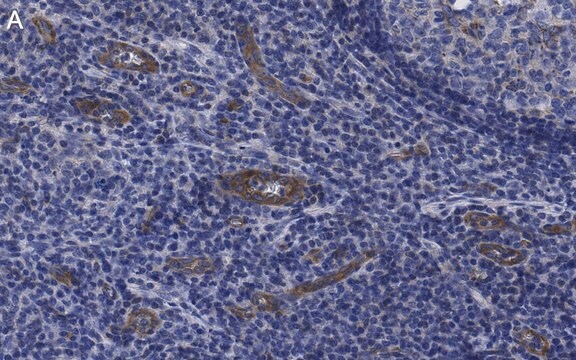V9263
Monoclonal Anti-Vascular Cell Adhesion Molecule 1 antibody produced in mouse
~1 mg/mL, clone 1.4C3, purified immunoglobulin, buffered aqueous solution
Sinônimo(s):
Anti-VCAM-1
About This Item
Produtos recomendados
fonte biológica
mouse
Nível de qualidade
conjugado
unconjugated
forma do anticorpo
purified immunoglobulin
tipo de produto de anticorpo
primary antibodies
clone
1.4C3, monoclonal
forma
buffered aqueous solution
peso molecular
antigen 110 kDa
reatividade de espécies
human
concentração
~1 mg/mL
técnica(s)
immunohistochemistry (formalin-fixed, paraffin-embedded sections): 2-4 μg/mL using human tonsil tissue
immunohistochemistry (frozen sections): 2-4 μg/mL using human tonsil tissue
western blot: suitable
Isotipo
IgG1
nº de adesão UniProt
Condições de expedição
wet ice
temperatura de armazenamento
−20°C
modificação pós-traducional do alvo
unmodified
Informações sobre genes
human ... VCAM1(7412)
Descrição geral
Imunogênio
Aplicação
forma física
Exoneração de responsabilidade
Não está encontrando o produto certo?
Experimente o nosso Ferramenta de seleção de produtos.
recomendado
Código de classe de armazenamento
12 - Non Combustible Liquids
Classe de risco de água (WGK)
WGK 2
Ponto de fulgor (°F)
Not applicable
Ponto de fulgor (°C)
Not applicable
Certificados de análise (COA)
Busque Certificados de análise (COA) digitando o Número do Lote do produto. Os números de lote e remessa podem ser encontrados no rótulo de um produto após a palavra “Lot” ou “Batch”.
Já possui este produto?
Encontre a documentação dos produtos que você adquiriu recentemente na biblioteca de documentos.
Nossa equipe de cientistas tem experiência em todas as áreas de pesquisa, incluindo Life Sciences, ciência de materiais, síntese química, cromatografia, química analítica e muitas outras.
Entre em contato com a assistência técnica